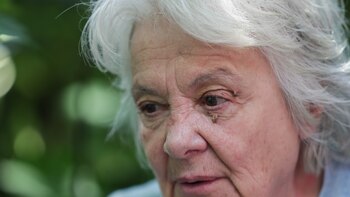
This article originally appeared in the Mainichi Shimbun, May 27, 2019
(ATR) Ready, Set, Tokyo.
Those three words mark the branding for the series of test events for the Olympics and Paralympics about to begin across Japan. There are 55 events, which is an Olympic record.
The parade of sports begins in June with the modern pentathlon World Cup Final and ends in the new National Stadium next May.
In between competitions, each of the 24 venues planned for Tokyo will undergo an acid test to expose weaknesses and problems ahead of the Olympics. The test event ritual is a necessity for every Olympic and Paralympic host city, and is even written into the contract signed with the IOC.
"London Prepares" was the understated tagline for the 2012 Olympics test events. The "last battle" is how a Beijing 2008 executive described the 35 test events for those Games. Rio 2016 called its series "Aquece", the Portuguese way of saying warm up.
Technically, the test event calendar began last year with sailing, the only one of the Olympic sports that needs two test events. Sailors need to know the waters in which they will compete.
Last year hundreds of sailors from around the world traveled to the venue at Enoshima to get their sealegs in the first regatta organized by the Japan Sailing Association. The JSA and World Sailing will join forces again in August for the final regatta ahead of Olympics.
The need for two sailing test events was certainly proved in Rio de Janeiro. The first sailing test in 2014 attracted worldwide attention, but not for sport. Pollution was the problem.
This beautiful setting for the Olympics -- the first ever held on the shores of the Atlantic Ocean -- came with a filthy concentration of sewage and garbage. It took Rio a full two years to come up with a plan to keep the water clean during the Games.
Risks to athletes’ health were alsoexposed at the test event for rowing in the 2004 Olympics in Athens. Dozens of teenaged rowers competing in the junior world championships were stricken with a stomach virus linked to the kitchen of the hotel where they stayed.
The Junior Worlds are the customary test event for rowing, and Tokyo is no exception. The Sea Forest Waterway will stage its competition debut from August 7 to 11 with the 2019 edition of the championships. Here’s to the health of the teams headed to Japan.
The Tokyo 2020 test event schedule presents a range of talent on the field of play. While some events will be organized to accommodate spectators, other events will be staged without grandstands and the security that will come during the Games.
Nonetheless, test events also givefans the chance to check out what’s coming to Tokyo.
Out of the 55 events on the Tokyo calendar here are my top picks.
1 - The test event for the new Olympic sport of surfing is July 18 to 21 at Tsurigasaki beach. This first-ever Olympic event will be historic for the sport. The nagging question is whether the waves will be good enough.
2 - The World Judo Championships August 25 to September 1 at Nippon Budokan. The world’s best judoka will compete at the same arena where judo debuted at the 1964 Olympics. The karate test event is also here September 6 to 9. Tickets needed.
3 - Weightlifting and its Paralympic cousin powerlifting will be tested at the Tokyo International Forum. Weightlifting is July 6 to 7, powerlifting Sept. 26 to 27.
4 - Gymnastics will present the world’s best twisting and tumbling at two events at the Ariake Gymnasium. The Trampoline World Championships are November 28 to December 1. The Artistic Gymnastics World Cup will be April 4 to 5 in 2020. It will be followed April 6 by a rhythmic gymnastics test event.
5 - Skateboard, another new sport for Tokyo, will be tested at the Ariake Urban Sports Park on April 22. There is a lot of anticipation for the impact skateboarding will have on the Olympics.
6 - The athletics test events next May will be the first sports events in the new Olympic Stadium. The national Paralympic championships are May 2 to 3, followed closely by the Tokyo Challenge Track Meet May 6. Tickets for this event will be far more plentiful and much cheaper than they will be two months later for the Olympics.
Written by Ed Hula.
Últimas Noticias
Sinner-Alcaraz, the duel that came to succeed the three phenomenons
Table tennis: Brazil’s Bruna Costa Alexandre will be Olympic and Paralympic in Paris 2024

Rugby 7s: the best player of 2023 would only play the medal match in Paris

Rhonex Kipruto, owner of the world record for the 10000 meters on the road, was suspended for six years

Katie Ledecky spoke about doping Chinese swimmers: “It’s difficult to go to Paris knowing that we’re going to compete with some of these athletes”




